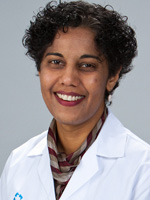 I saw a 61 year old gentleman a few weeks ago for evaluation of enlarged lymph nodes in his neck. He reported noticing lumps in his neck 6 months ago and this slowly continued to increase in size. He initially thought it was related to an upper respiratory infection. However, when it persisted he sought further attention and was referred to me for evaluation of lymphoma.
I saw a 61 year old gentleman a few weeks ago for evaluation of enlarged lymph nodes in his neck. He reported noticing lumps in his neck 6 months ago and this slowly continued to increase in size. He initially thought it was related to an upper respiratory infection. However, when it persisted he sought further attention and was referred to me for evaluation of lymphoma.
Lymphoma is a cancer of lymph nodes. We all have lymph nodes throughout our body. These help to fight infections and can grow in size when someone has an infection. However, if one notices enlarged lymph nodes in the absence of infection, cancer of lymph nodes needs to be considered. Lymph nodes can be enlarged when another cancer spreads to lymph nodes such as breast cancer which can spread to lymph nodes in the arm pit. However, if a cancer arises from within the lymph node, it is called a lymphoma.
There are two main types of lymphoma namely, Hodgkin’s lymphoma and Non Hodgkin’s lymphoma. In addition, there are many different sub-types of Non Hodgkin’s lymphoma, broadly categorized as B-cell or T-cell lymphomas depending upon the type of cancer cells seen in the lymph nodes. The good news is that we have today many advanced treatments for lymphomas and some of these lymphomas are curable with currently available treatments.
If you feel around your neck or in the arm pits, normally you should not feel any knots since normal lymph nodes cannot easily be felt. Enlarged lymph nodes on the other hand, feel as knots or pebbles under the skin, and could be abnormal if they are greater than the size of a pencil eraser. In advanced cases, they can cause other symptoms such as weight loss, fevers or drenching night sweats. If they grow big, they can press against important organs and cause symptoms related to their location. For instance, enlarged lymph nodes in the chest can press against the wind pipes and cause difficulty breathing. If they are enlarged in the abdomen can cause abdominal pain or can cause press against the ureters and cause kidney failure.
If a lymphoma is suspected your doctor may perform additional tests including a CT scan or a PET scan to look for enlarged lymph nodes in the chest or abdomen followed by biopsy of the lymph node.
Lymph nodes throughout the body are like clusters of grapes attached by a vine called lymphatics. Therefore, it is important to give a treatment that will reach all affected lymph nodes and typically involves giving chemotherapy and/or radiation therapy. We have had many recent advances in treatment of lymphoma which includes biologic and targeted therapy. Unlike chemotherapy that can affect cancer cells and normal cells, targeted therapies are unique treatments that mostly target cancer cells and have only few side effects on normal cells. Some of these targeted therapies are oral pills that can be taken at home. With the availability of many new drugs over the past decade, lymphomas fortunately have become very easy to treat and even cure in many cases.
September is Lymphoma Awareness Month. I want encourage folks to get in the habit of regularly feeling around your neck, armpits and the groin and let your doctor know if notice any lumps. Keep your doctor informed of any new health related symptoms which have not been evaluated and may warrant additional workup. Like many other cancers, lymphomas are treatable and also curable in many cases especially if caught early.
Dr. Priya Rudolph, a graduate from Yale University is an experienced hematologist/oncologist with Georgia Cancer Specialists affiliated with Northside Hospital Cancer Institute (www.gacancer.com). She has offices in Athens (ph 706-369-4478) and in Greensboro (Ph 706 454-0159). Georgia Cancer Specialists is a top 10 privately owned practice and is a national leader in advanced cancer treatment and research. Its physicians and staff offer many clinical trials and state of the art personalized care to each individual patient.